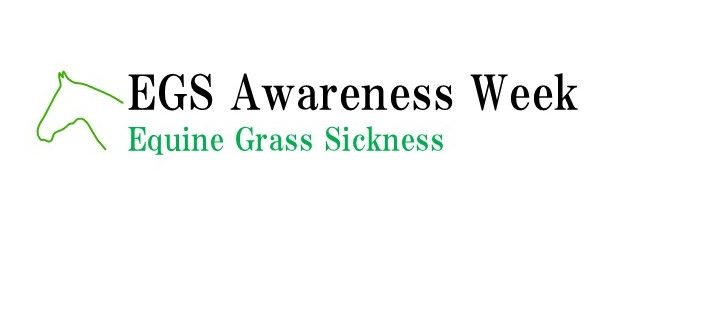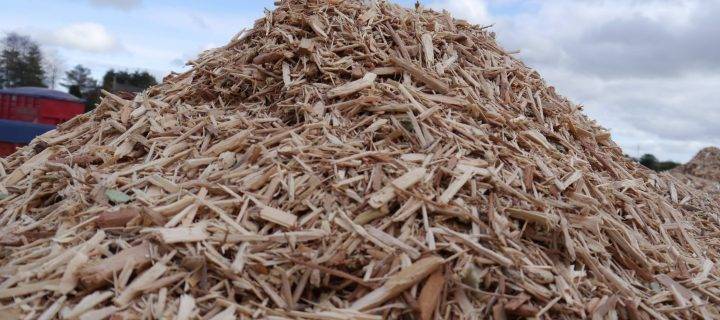One of the best ways to help horses competing in this year’s Grand National is by investing in high-quality equine bedding. The 173rd meeting of this iconic event in the horse racing calendar is set to take place on Saturday 10th April, after being cancelled last year due to the coronavirus pandemic. Aintree Racecourse in Liverpool will host the event which will have 106 entrants and take place with no spectators for the first time in its history due to the COVID-19 restrictions. For this blog, we will tell you a bit more about our range of horse bedding, to help you make an informed decision. The Power of Three for Equine Bedding Here at P.H Winterton and Son, we offer three different types of horse bedding that are guaranteed to suit your unique specifications and budgets. Cheshire Choice Bedding is our premium option that is made up of 100% soft wood shavings, that will give your horse the ultimate comfort when resting. This type of bedding is kept in quantities of one to 18 pallets, in case you wish to buy in bulk. Our Economy Bale Bedding is our budget range that will provide a warm bed whilst not breaking the bank. Using a mixture of hard and soft wood, making it easy to use with rubber mats. We have recently started stocking Zebra Fibre bedding which can be used for both horses and cattle and is available in 48-60 bales per pallet. P.H Winterton store this bedding in all-weather bags to protect it from the elements. Zebra Fibre bedding is extremely absorbent meaning there is minimal risk of abrasions for your animals. Contact Us With Any Questions If you have any questions about P.H Winterton’s range of equine bedding, please do not hesitate to get in touch now. Our team of specialists look forward to hearing from you. We supply horse bedding for customers all over the country, including areas such as Hampshire, Somerset and Taunton and...
Read Moreabout Why Quality Equine Bedding Could Ensure Grand National SuccessP.H Winterton and Son are supporting an awareness week for equine grass sickness organised by the owners of two survivors. The aim of EGS Awareness Week (which takes place between 29th March and 4th April) is to give something back and help other horse owners. Organised by Basingstoke-based Sarah Hatter and Rhiannon Boyle from Essex, the week will provide facts, scientific information and advice about the disease with input from veterinary experts, feed companies and other owners of grass sickness survivors. For our latest blog, PH Winterton will explain EGS Awareness Week in greater detail. EGS Awareness Week Explained Sarah explained the campaign to Horse and Horse Magazine, saying, “I had come home from university and the yard said Milo hadn’t been eating or pooing as much. He was initially treated for colic and underwent surgery where the vets found a small twist, but they decided to take a small biopsy, and he was diagnosed with grass sickness. “It was so hard-hitting, and I was told he probably wasn’t going to make it. I just burst into tears uncontrollably. That day my mum Jane took me to the vets for us to say goodbye.” Sarah said when she arrived at the vet’s, the then six-year-old Milo was ‘bright and perky’ and it was decided to give him another chance. “Seeing him get through the first 48 hours suggested it wasn’t acute, then making it through the following two weeks meant it was unlikely it was subacute. Being a chronic case meant he had a better chance,” she said. “I have a horsey Instagram account and posted about my Milo having EGS. Rhiannon commented and said her horse Stripe had been diagnosed too and we started speaking from there,” she said. “It’s was so lovely meeting Rhiannon and just shows that social media can have a positive side. We never thought our horses would make it and we know we’ve been lucky with Milo and Stripe so we really want to give something back. We’re so passionate about raising awareness of EGS and hope this could become an annual week.” Need Advice? Contact PH Winterton Now If you have any questions about equine grass sickness, please do not hesitate to...
Read Moreabout PH Winterton Supporting EGS Awareness WeekBiomass fuel boilers offer a great renewable and sustainable heating solution, which can also give users savings on energy bills. Since the start of the Renewable Heating Incentive new build properties and conversions have been employing biomass boilers more and more, especially in larger buildings. Biomass is also now included in the Green Homes Grant scheme. For this blog, we will explain biomass energy in greater detail. Biomass Explained Biomass boilers burn natural materials such as wood pellets, chips or logs to provide heating and power hot water boilers. In brief, biomass is any organic material that can be used as fuel and in the UK and European domestic markets wood pellet boilers are easily the most commonly used. The main biomass products used in homes are wood-based due to the potential clean burn. Biomass is a carbon-neutral fuel as CO2 is absorbed by trees as they grow through photosynthesis, which also removes CO2 from the atmosphere. CO2 is emitted when the fuel burns, with the amount measured as equal to that absorbed during growth plus any additional carbon produced while manufacturing and transporting the fuel source. Wood pellets are the most consistent biomass fuel as they are usually very even sizes with the density automatically fed into the burner plus its easy to store and they have very low ash content. PH Winterton‘s range of wood pellets is made from sawmill waste, with the wood being compressed and converted to sawdust before being compressed into pellets. Talk to the Experts If you are looking to add a renewable heating source to your next construction project, get in touch with PH Winterton and Son to discuss biomass fuel in greater detail. We are part of the government’s approved Biomass Supplier List, which allows members of the Renewable Heating Incentive to receive discounts on their heating bills by using a renewable energy product. Don’t forget we also provide a Sawmill Waste collection service to ensure we continue to provide biomass wood pellets...
Read Moreabout Why Biomass Fuel Boilers are EssentialBiomass energy projects in the UK are set to receive £4 million of Government funding, making it a great time to start using biomass fuel. As one of the leader suppliers of P16 and P35 grade biomass energy, PH Winterton understands the importance of investing in renewable energy sources. What Does This News Mean for Biomass Fuel Users? The investment from the government is aiming to increase the production of sustainably sourced biomass in the UK, which supports local economies and regional growth with the aim to create jobs in rural areas. Energy Minister Anne-Marie Trevelyan commented, “The UK’s energy innovators have been vital to us becoming a world-leader in clean green technology, helping us to go further and faster as we tackle climate change. “The funding will allow us to develop new ways of unlocking the potential for green energy as we continue making big strides towards our goal of eradicating our contribution to climate change by 2050.” This project is part of a wider scheme to support the UK’s transition to clean and green energy whilst tackling climate change, including biomass energy production, energy storage technology and floating offshore wind. Trusted Suppliers of Renewable Energy PH Winterton and Son are proud to be part of the UK government’s Biomass Supplier List, which lists the approved suppliers of renewable energy across the country. This resource allows Renewable Heating Incentive (RHI) participants to easily demonstrate to Ofgem that the fuel they are using in their biomass boilers meets the RHI sustainability criteria required to claim their RHI payments. Get in Touch With Any Questions If you would like to know more about biomass fuel before investing, please do not hesitate to contact PH Winterton today. Our team of specialists will be more than happy to assist you. We are also the leading supplier of equine and animal bedding for customers right across the...
Read Moreabout Investment in Biomass Fuel is the FutureAs a premium supplier of equine bedding, P.H Winterton regularly have correspondence with fellow horse owners. It is many of the aforementioned horse owner that will take part in this year’s Cheltenham Festival. The flagship event was one of the last mass participation events before the first Coronavirus lockdown last year. This year will certainly be different with no crowds at Prestbury Park being the main difference. For this blog, we will explain the ways the Cheltenham Festival will change in 2021. How Attendances Will Be Restricted Plus Other Changes Attendance will be restricted to staff who are essential to the care of the horses and the smooth running of the racecourse. Additionally there will be a vastly reduced media presence. Reduced entourages will be allowed for each runner but this does not extend to the bill-paying owner. Biosecurity measures will also be implemented surrounding those challengers travelling over from Ireland, with special zones created adjacent to the racecourse stables where every groom, trainer and jockey must stay while not exercising or racing their horses. The final casualty will be the absence of amateur riders. This means the National Hunt Chase, the Fulke Walwyn Kim Muir Chase and the Hunters’ Chase (no longer the Foxhunters’) will all now feature professional jockeys. The programme will also change, with the novice handicap chase disappearing from the Tuesday card. Mrs Paddy Power Mares’ Chase from Friday will be replacing it. The Leading Suppliers of Equine Bedding Whether you are racing at the Cheltenham Festival or not, you will need the best equine bedding for your horses – which is where PH Winterton and Son can help. We have three ranges of equine bedding that will suit any budget or specific requirement. Contact us if you have any questions about horse bedding or any of our other products, such as biomass fuel. Our team of specialists will be more than happy to help with any...
Read Moreabout How the Cheltenham Festival Will Be Different This Year




